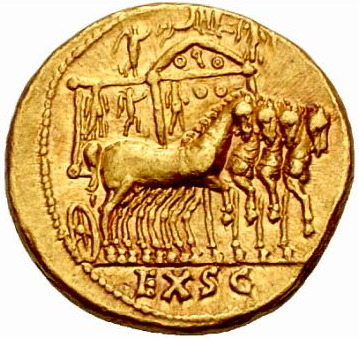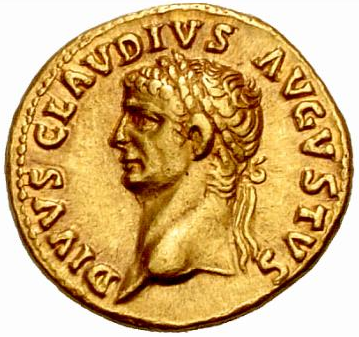Call for papers - BY 30 June 2011
Call for Papers: "Sociability in Great Britain and in France in the Enlightenment: forms, functions and operational modes"
International Conference : « Sociability in Great Britain and in France in the Enlightenment: forms, functions and operational modes”.
Organised by CEIMA (Centre for Interdisciplinary Studies of the English-Speaking World)/HCTI (Heritage and Constructions in Texts and Images) EA 4249, University of Western Britanny, UBO, BREST on 8th and 9th March 2012 at the Faculty of Arts and Social Sciences Victor Segalen, Brest (France).
This conference is the third stage in the completion of a three-year project sponsored by the Maison des Sciences Humaines de Bretagne (MSHB), “Sociability in France and in Great Britain in the Enlightenment: the emergence of a new social model” and is the climax of a series of scientific events which started in December 2009.
The foundational research undertaken in the 1970s by French historians Emmanuel Le Roy Ladurie and Maurice Agulhon led to a redefinition of sociability as “an ability to actively interact publicly” and paved the way for an innovative exploration of its forms and practices. For contemporary sociologists like Michel Forsé, it “refers to the entire nexus of relationships that an individual has with others considering the form of these relationships”. The concept of sociability does not have the same historicity in France and in Great Britain where it is equated with conviviality while its sociological meaning is largely ignored. It appeared at the beginning of the twentieth century in social sciences thanks to German sociologist Georg Simmel who saw it as a type of interaction and highlighted “the reciprocal link which somehow freely unites individuals”. Simmel apprehended sociability as “an unsettled form which is never permanently defined”. All the forms of “relations and reciprocal actions” will be of primary interest to us, from a perspective which takes into account the Chicago School interaction theory, but which is open to other schools of thought and favours a cultural studies approach.
Papers will be given along two lines, the public sphere and the private one, and will examine the emergence of new rituals, of new social codes, that often took place in new social spaces where the role of cities was decisive. The question of the relationship with the other and of the part played by the individual within new social networks will be addressed; a systematic comparison between the two nations will be made at the end of the conference in a round table session.
The short-term objectives of the research conducted in the conference and also by the members of the project are the following ones:
- a definition of the meaning of sociability for each of the two nations, the establishment of a typology of sociability, an exploration of the solutions that were put forward to solve the self-versus society conundrum
- an examination of the balance between sociability and repression: to what extent has sociability been instrumentalized for repressive ends? Such questioning should favour a better understanding of the link between sociability and marginality.
- an analysis of the Franco-British relationships during the Enlightenment period, at a time when inFrance Anglophobia was matched by Anglomania, while on the other side of the Channel Francophobia and Francophilia similarly informed the perception of the foreigner.
In the long run, the conference and the workshops that took place prior to it aim at questioning the often assumed superiority of the French model of sociability. The notion is an adequate tool to assess the validity of various claims and commonly accepted beliefs in the field of the relationships between the two nations. The archaeology of knowledge that it induces leads ultimately to a reinterpretation of the present.
The conference will welcome papers from specialists of various research fields, such as history, the history of art and architecture, of medicine, urban studies, gender studies and literature working on British or French documentary sources.
Individual papers given in French or in English should not exceed 25 minutes; a selection will be published. Please send a 250-300 word abstract and a brief biography by 30 June 2011 to the conference organizers:
Professor Annick Cossic annick.cossic@univ-brest.fr
Professor Norbert Col norcol@univ-ubs.fr
Call for papers in English
 Services Services |
|---|
|
|
 Toutes les formules traduction Toutes les formules traduction |
|---|
| Basic |
Traduction + pointage : Communication interne • Courrier administratif ou privé |
 |
| Standard |
Traduction + pointage + relecture : Catalogues • Sites marchands • Brochure • TIC |
| Premium |
Traduction spécialisée + pointage + relecture : Marketing-communication entreprise • Science et technique • Juridique |
| Expert |
Premium + révision consultant : Brevets • Contrats • Communication institutionnelle |
| Legalis |
traduction assermentée : Visas • Diplômes • Certificats • Actes notariés... |
| Littéraire |
Traduction prête-à-publier : Littérature • Essais • Guides pratiques • Articles Internet & Presse • Sciences |
| Audiovisuelle |
VOST et doublage : Films promotionnels • Nouvelles et interviews • Fictions & séries TV • Reportages et documentaires • Clips et vidéo-buzz
|
| Toutes les options bénéficient de la garantie services d'agence |
 All our translation formulas All our translation formulas |
|---|
| Basic |
Translation + Check: Internal communication • Administrative or private mail |
 |
| Standard |
Translation + Check + Second reading: Catalogues • Commercial site • Brochures • ITC |
| Premium |
Specialised translation + Check + Second reading Enterprise marketing & Communication • Science & Technics • Legal |
| Expert |
Premium + Consultant revision: Patents • Contracts • Corporate Communication |
| Legalis |
Sworn translation: Visas • Diplomas • Certificates • Notarial Deeds... |
| Literary |
Ready for print translation: Litterature • Essays • Practical Guides • Articles Web&Print • Sciences |
| Audiovisual |
Subtitled original version & Dubbing: Advertorials • E-learning • TV news & Interviews • Fictions & TV series • Documentaries & Reportages • Clips & Video-buzz
|
| All the above options are guaranted by our Agency |
 Paketi prevođenja Paketi prevođenja |
|---|
Basic
|
Prijevod + provjeravanje: Interna komunikacija • Poslovna ili privatna pisma |
 |
Standard
|
Prijevod + provjeravanje + lektura: Katalozi • Web stranice • Brošure • ITC |
| Premium |
Stručni prijevod + provjeravanje + lektura: Marketing-komunikacije • Znanstveno-tehnički • Pravni |
| Expert |
Premium + pregled stručnog konzultanta: Organizacije, institucije, velike grupacije, prestižne marke |
| Legalis |
Ovjereni prijevodi: Vize • Diplome • Svjedodžbe • javnobilježnički isprava |
| Literarni |
Prijevodi spremni za objavljivanje: Literatura • Eseji • Praktični vodiči • Novinski članci • Web stranice s plaćenim pristupom • Znanost |
| Audiovizualni |
Podnaslovom izvorne verzije i snimanje: Promotivni filmovi • E-učenje • TV vijesti & intervjue • Fikcija & TV serije • Reportaža & dokumentarni filmovi • Isječaka & Video-buzz |
| Svaka formula u potpunosti je prilagođena specifičnim zahtjevima. |
 Langues - Languages - Lingue - Idiomas - Sprachen - Jezici - Језици Langues - Languages - Lingue - Idiomas - Sprachen - Jezici - Језици |
|---|
| Albanais |
Albanian - Albanese - Albanés - Albanisch - Albanski - Албански - Gjuha Shqipe |
| Allemand |
German - Tedesco - Alemán - Deutsch - Njemački - Немачки |
| Anglais |
English - Inglese - Inglés - Englisch - Engleski - Енглески |
| Arabe |
Arabic - Araba - Árabe - Arabisch - Arapski - Арапски - العربية |
| Biélorusse |
Belarussian - Bielorusso - Bielorruso - Weißrussisch - Bjeloruski - Белоруски - Беларуская |
| Bulgare |
Bulgarian - Bulgaro - Búlgaro - Bulgarisch - Bugarski - Бугарски - Български |
| Catalan |
Catalan - Catalano - Catalán - Katalanisch - Katalonski - Каталонски - Català |
| Chinois |
Chinese - Mandarino - Chino - Chinesisch - Kineski - Кинески - 中国语文 |
Croate
Bosnien
Monténégrin
Serbe
Serbo-croate/Croato-serbe |
Croatian - Croato - Croata - Kroatische - Hrvatski - Хрватски
Bosnian - Bosniaco - Bosnio - Bosnisch - Bosanski - Бошњачки
Montenegrin - Montenegrino - Montenegrino - Montenegrinisch - Crnogorski - Црногорски -
Serbian - Serbo - Serbio - Serbisch - Srpski - Српски/Srpski
Serbo-Croatian/Croato-serbian (BCMS - Bosnian Croatian Montenegrin Serbian) - Serbo-croato/Croato-serbo - Serbocroata/Croatoserbio - Serbokroatisch/Kroatoserbisch - Српскохрватски-Srpskohrvatski/Hrvatskosrpski-Хрватскoсрпски |
| Espagnol |
Spanish/Castilian - Spagnolo/Castellano - Español/Castellano- Spanisch - Španjolski/kastiljski- Шпански/кастиљански |
| Français |
French - Francese - Francés - Französisch - Francuski - Француски |
| Géorgien |
Georgian - Georgiano - Georgiano - Georgisch - Gruzijski - Грузијски - ქართული ენა (kartuli ena) |
| Grec |
Greek - Greco - Griego - Griechisch - Grčki - Грчки - Ελληνικά |
| Hébreu |
Hebrew - Ebraico - Hebreo - Hebräisch - Hebrejski - Хебрејски - עִבְרִית |
| Hongrois |
Hungarian - Ungherese - Húngaro - Ungarisch - Mađarski - Мађарски - Magyar nyelv |
| Italien |
Italian - Italiano - Italiano - Italienisch - Talijanski/Italijanski - Италијански |
| Japonais |
Japanese - Giapponese - Japonés - Japanisch - Japanski - Јапански - 日本語 |
| Letton |
Latvian - Lettone - Letónico - Lettisch - Latvijski - Летонски - Latviešu valoda |
| Lituanien |
Lithuanian - Lituano - Lituano - Litauisch - Литвански - Lietuvių kalba |
| Macédonien |
Macedonian - Macedone - Macedonio - Mazedonisch - Makedonski - Македонски -македонски |
| Néerlandais |
Dutch - Olandese - Neerlandés - Niederländisch - Nizozemski - Холандски - Nederlands |
| Polonais |
Polish - Polacco - Polaco - Polnisch - Poljski - Пољски - Polski |
| Portugais |
Portuguese - Portoghese - Portugués - Portugiesisch - Portugalski - Португалски - Português |
| Roumain |
Romanian - Rumeno/Romeno - Rumano - Rumänisch - Rumunski - Румунски - Română |
| Russe |
Russian - Russo - Ruso - Russisch - Ruski - Руски - Русский |
| Slovaque |
Slovak - Slovacco - Eslovaco - Slowakisch - Slovački - Словачки - Slovenčina |
| Slovène |
Slovenian - Sloveno - Esloveno - Slowenisch - Slovenski - Словеначки - Slovenščina |
| Tchèque |
Czech - Checo - Ceco - Tschechisch - Češki - Чешки - Čeština |
| Turc |
Turkish - Turco - Turco - Türkisch - Turski - Турски - Türkçe |
| Ukrainien |
Ukrainian - Ucraino - Ucraniano - Ukrainisch - Ukrajinski - Украјински - Українська |
Traducteurs internes - Nous pouvons également fournir d'autres langues sur demande.
Internal translators - We can also provide other languages on demand. Podcrtano: obavlja se unutar tvrtke - Lingua Veritas čini sve kako bi zadovoljila novom zahtjevu : traži odgovarajućeg prevoditelja u svezi s određenim projektom uz preliminarni test. |













